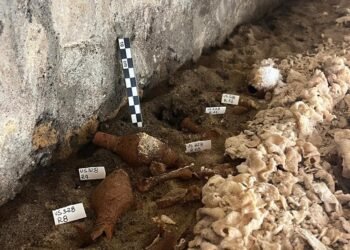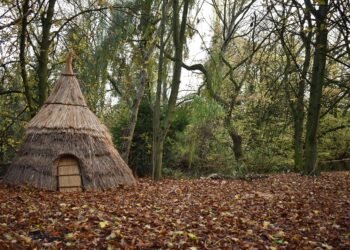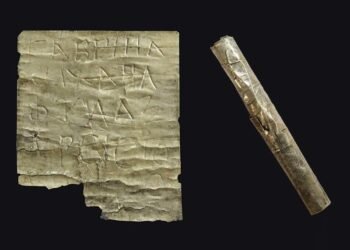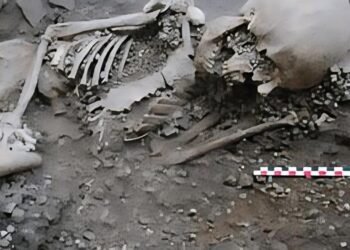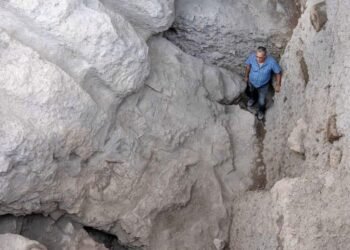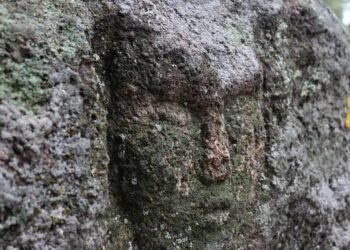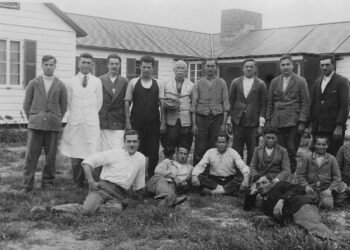Veronica Waweru, an archaeologist from Yale University, has unearthed an “arcade” of rock-cut Mancala game boards in Kenya’s highlands.

Mancala, derived from the Arabic word “Naqala,” meaning “to move,” is a turn-based strategy game where the goal is to capture more gaming pieces than the opponent. Its roots trace back to early civilizations, with examples found in Aksumite settlements in Eastern Africa from the 8th century CE, as well as in Ancient Egypt and the Roman Period.
The earliest known Mancala board dates back to approximately 5870 ± 240 BCE at the Neolithic site of ʿAin Ghazal in Jordan, according to the Savannah African Art Museum.
Veronica Waweru’s discovery emerged following a tip about tourists removing prehistoric hand axes from a private wildlife conservancy. Investigating further, she encountered an “arcade” of ancient Mancala game boards carved directly into a rock ledge. The site, located along the equator in Kenya’s central highlands, also features 19 burial cairns built by herding communities that inhabited the region 5,000 years ago.

The age of the game boards, carved into 400-million-year-old rock, poses a challenge for accurate dating. Despite this, Waweru says: “It’s a valley full of these game boards like an ancient arcade. Given the erosion of some of the boards, I believe that people were playing games there a very long time ago.”
Waweru’s hypothesis suggests a connection between the Mancala boards and the burial cairns. The presence of knife-sharpening marks around the game boards implies engagement in feasting and butchery activities by the ancient inhabitants.
Waweru’s team has applied for funding to conduct further studies, aiming to unravel more mysteries surrounding this unique archaeological site.
The partnership with locals has proven immensely fruitful, resulting in the discovery of about 35 sites, including fossils, artifacts, and new archaeological sites. Waweru says: “My research team’s hope is to show other scientists working on human evolution in Africa that harnessing multiple voices to conduct human origins research is not just a social justice issue but a productive model for conducting research.”

This discovery suggests that leisure activities like playing Mancala were integral to the social fabric. Waweru expressed the significance of community involvement, stating, “We’re working with them as equals in the production of this knowledge… They’re engaged and excited. They’re good at it.”
The region’s highlands, previously overlooked, are now recognized as crucial to understanding human evolution.



